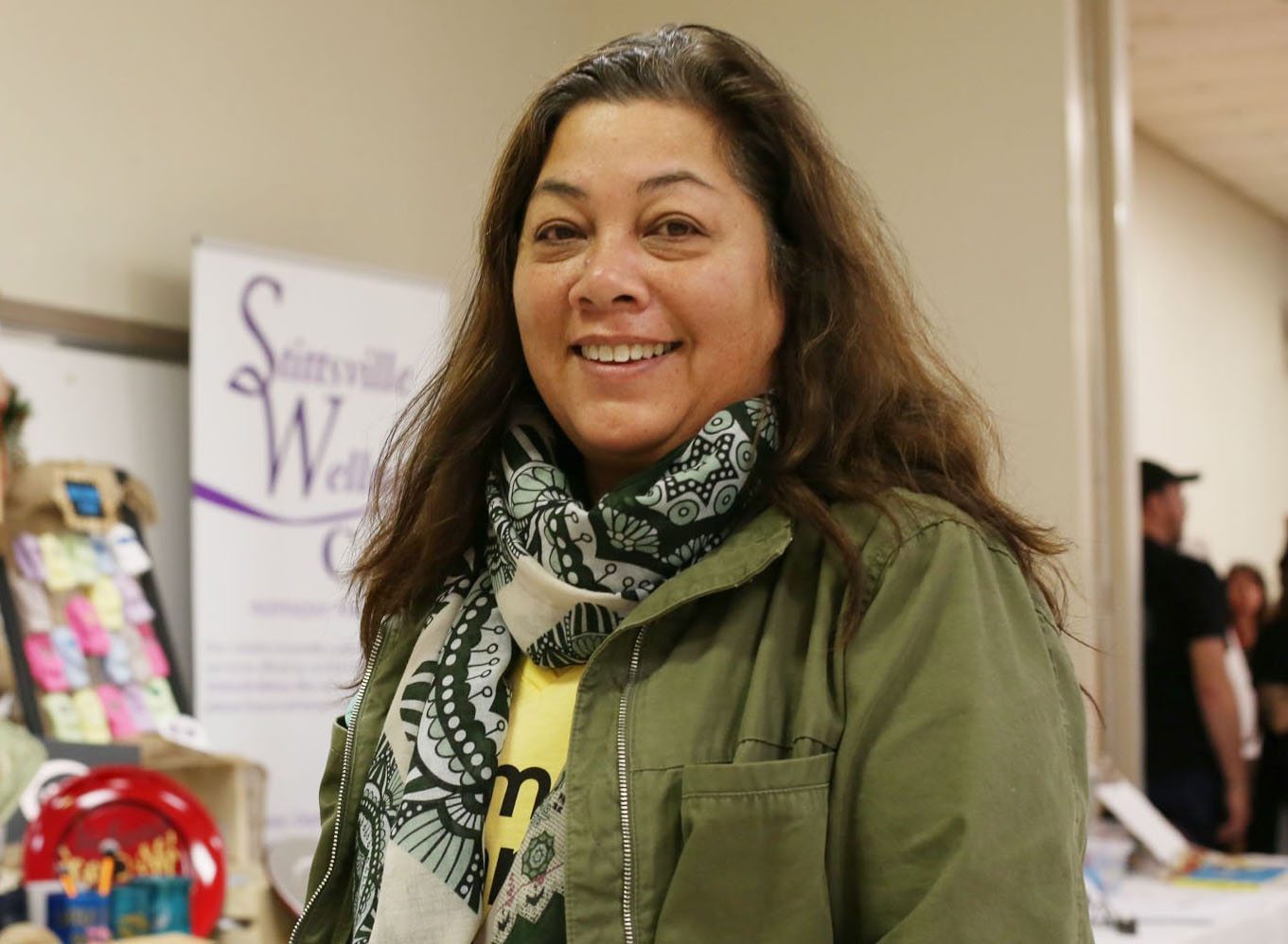BEHIND THE CRIMES: 'The day I was going to die': Carleton Place domestic abuse survivor shares her story to help others

True crime fan? Go behind the crimes in Ontario. Uncover what clues helped investigators put criminals behind bars and which ones remain elusive to give families closure. Curated stories from Metroland's previously published series, Behind the Crimes: Solved and Unsolved Cases in Ontario, shines a spotlight on some of the most significant crimes in communities across the province. This story was originally published on June 3, 2021.
A former Carleton Place woman, who sought refuge from a horrific domestic violence situation at the Lanark County Interval House (LCIH) nearly three decades ago, is continuing to use her voice to speak out to help others in similar situations.
Heather Imming's battle was not easy. She survived 15 years with her abusive husband, Bill Imming, who died in a Quebec prison in 2002.
I was so lucky living in Carleton Place and to have the support of everybody. So considerate in trying to keep me safe and keep me alive. I want that for every woman - why can't it be?"
Imming was a subcontracts manager in the aerospace industry before a series of brutal attacks by her estranged husband changed her life.

The abuse started with arguments, then shoving, then slaps and punches which culminated with her waking to her husband straddling her body as he punched and choked her.
He was just whaling on me and I couldn't move," she said in a talk at Algonquin College in 2011. He told me he had to go out and get ammunition ... that was the day I was going to die. I believed him."
Imming got her 10-year-old daughter on the school bus that day, cleaned herself up, then retrieved her daughter from school. She went to the doctor with a dislocated shoulder. Her doctor advised her to leave her husband; she did, going to her sister's place, staying until she could get the family home - which Bill had destroyed in a fit of rage - livable once again. She'd put alarms on every door and barricaded the basement. But that didn't deter her husband.
Bill attacked Imming as she tried to push the panic button on the alarm system, hitting her several times in the head with a tire iron and trying to remove one of her eyes with his thumb. She suffered liver and brain injuries.
Bill was arrested after the daughter ran for help. He served 22 months.
The following 11 years, Imming was terrorized as Bill was released from prison only to reoffend within six weeks.
We would move into Lanark County Interval House during the period he was released so we could be protected," she said.

Erin Lee is the executive director at LCIH.
The staff at LCIH at the time were really instrumental in providing the guidance around safety and support and validation, believing in her and supporting her all the way through the process," Lee said. She never had to worry if someone would be on the other end of a phone line when she needed to chat."
Lee said there was also great support for Imming's daughter, who was a witness to the traumas her mother faced. I think that having the supports of the agency from the onset all the way through helped Heather find her courage and helped her find the tenacity and the strength to navigate it."
Those supports also helped Imming and her daughter heal. Heather continued to grow to be this awesome victim advocate, known provincially and beyond, for her voice, for her journey, for her story, but also for her advocacy for the rights and needs of victims."
Imming continues to be connected to LCIH and continues to advocate for rural women who have experienced violence.
Eventually, Bill was arrested and declared a dangerous offender; it was the first time the dangerous offender legislation was applied strictly on the basis of violence against women.
Everyone kept saying there was no way," she said of her hopes of having him charged under this new legislation. But there were advocates ... There was a lot of lobbying, worrying, trying to push the envelope as far as I could because that was the only way women weren't going to fall through the cracks."
Bill died in prison in 2002. According to an article in the Globe and Mail dated Jan. 1, 2002, he died of natural causes. He was taken from his cell at the prison in Quebec's Eastern Townships and declared dead in hospital just after midnight.
Imming said she tells her story because she wants other women to see that they can have a good life.
It may take 10 years, or it may take 20," she said, explaining how long it could take for someone to get out of a domestic violence situation.
MANY REASONS FOR STAYING
Imming moved to Carleton Place with Bill in 1981. Due to her brain injury, she can't remember how they met.
I've probably blocked it out," she said.
As for a financial roadblock that kept her in the marriage, that wasn't the case in her situation. She had a high-paying job and was not dependent upon her husband's money.
"I couldn't get away from him," she said. I could never get divorced from him. I couldn't sell the house when he was alive, so I had to keep paying this massive mortgage on social assistance. Help from the food bank, neighbours, farmers in the area would bring me things. I valued the help I got so much and never forgot it."
USING HER VOICE
Since 1997, Imming has been an outspoken advocate and educator on issues of violence against women and continues to ensure the victims with whom she meets are connected to appropriate and safe resources that can meet their needs.
She is the founder of the consumer group Share Our Strength," and she has also served in the community with the Lanark Coalition Against Violence, the Lanark County Domestic Violence Court Advisory Committee, the Domestic Violence/Sexual Assault Protocol Committee, the Lanark County Interval House and the Domestic Violence Grant Management Team. She also is a member of the Connecting on Disability and Abuse committee (CODA) in Ottawa.
Imming was part of the initial advisory committee that developed the Victimology Graduate Certificate Program at Algonquin College, and continues to serve as the chair of the Advisory Committee for this academic program.
If you are in a domestic violence situation, there is help: visit Ending Violence Association of Canada for information or call 911 if it's an emergency.
Imming was appointed by Ontario's attorney general at the time, Michael Bryant, to the Office of Victims of Crime.
She now lives in Ottawa and is still an advocate. Her goal is to reach more young people about domestic violence, possibly starting in middle school.
I think even before Grade 6 - they're seeing it at home," Imming said. How do they recognize that it's not normal if they see it in the home?"
As a board member, she stays involved in the community.
I'm still out there," she said. Unfortunately, I caught COVID."
Hers was a presumptive case as she contracted the virus in March 2020 at which time she was travelling - before testing began.
I had it really badly," she said. I struggled a little bit to get my strength back but still work as much as I can."
Imming said she will speak to any group, anywhere - albeit, that may be virtually for a while.
I did have a pretty severe brain injury, so I have difficulty organizing my thoughts," she said.
She would like to write a book, she added. I thought about it. People told me I should, but I can't get it together."

CHANGES TO LEGISLATION
Allan Rock, now a professor of law at the University of Ottawa, played a role in getting that legislation changed in the mid-1990s. He worked with then-solicitor general responsible for prisons, the late Herb Gray. Rock was the attorney general responsible for the Criminal Code.
As a government, we enacted an entirely new section of the criminal code - the section dealing with sentencing. We repealed and replaced it with a whole new approach to sentencing with new principles and purposes," Rock said in an interview with the Courier.
We made some adjustments to the dangerous offender legislation and then we looked at the question of prison terms and we provided for more substantial prison terms, even for young offenders who committed murder, and then we asked a question because in the U.S. they were grappling with this too. What do you do when the sentence you give somebody comes to an end? And there is still reason to believe there is a threat to other people?
"It's unconstitutional to extend the term of their imprisonment. They've already served their sentence. What we did was put a provision in the Criminal Code that allowed the Crown attorney to go to the court on evidence that person constituted a continuing threat and then the court was empowered to make an order restricting their movement or limiting their liberty."
Rock said there is still much to do to help people in abusive and domestically violent situations.
Sadly, there are many such cases. The incidences of violence against women is appallingly high, so the need has always been there."
Beyond that Rock said they did a lot of work putting limits on access to private records of complainants in cases of sexual abuse and sexual assault.
The defence lawyers would ask for the private records of the complainant, so they could find something in her background to discredit her in their cross-examination, or at least embarrass her," he said.
That was always a disincentive for women to report sexual assault. We changed the law so that defence counsel was not able to get access to that private information, except with a court order showing very good reason as to why they should get access to it. It was no longer used as an intimidation tactic to discourage women from coming forward.
There were many things we did during that period to deal with the issue of men's violence against women," which continues.
More needs to be done," he said.
So many women don't have any real options, even in non-COVID times. Often, they're not the bread winner, they rely on the partner's income. If that person is abusive, their options are limited - living in fear, you're worried about finances, the kids."
With files from Jennifer McIntosh, Carleton Place-Almonte Canadian Gazette, 2011.